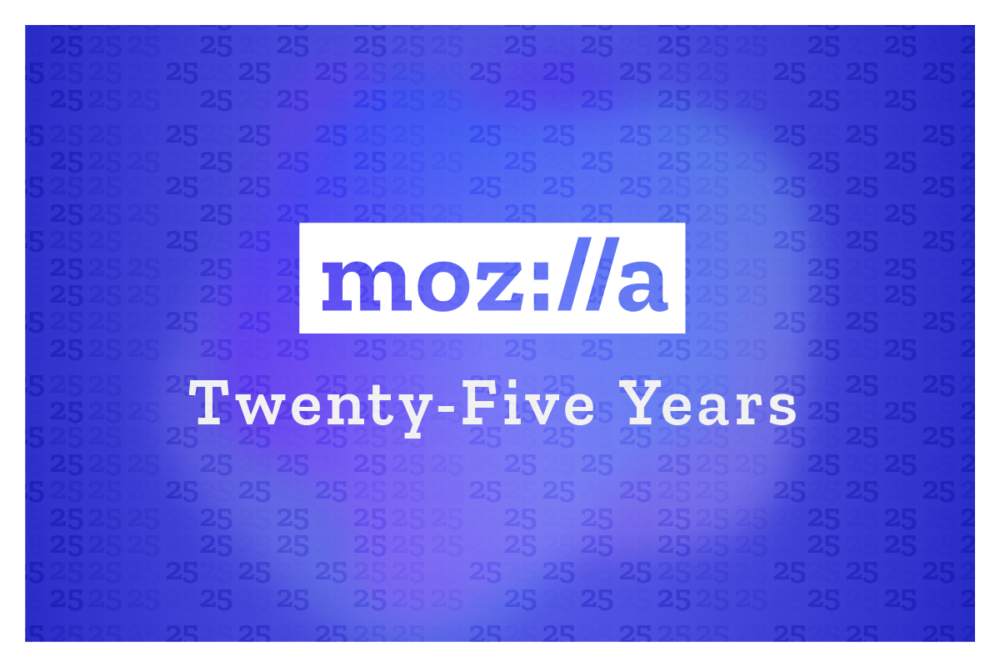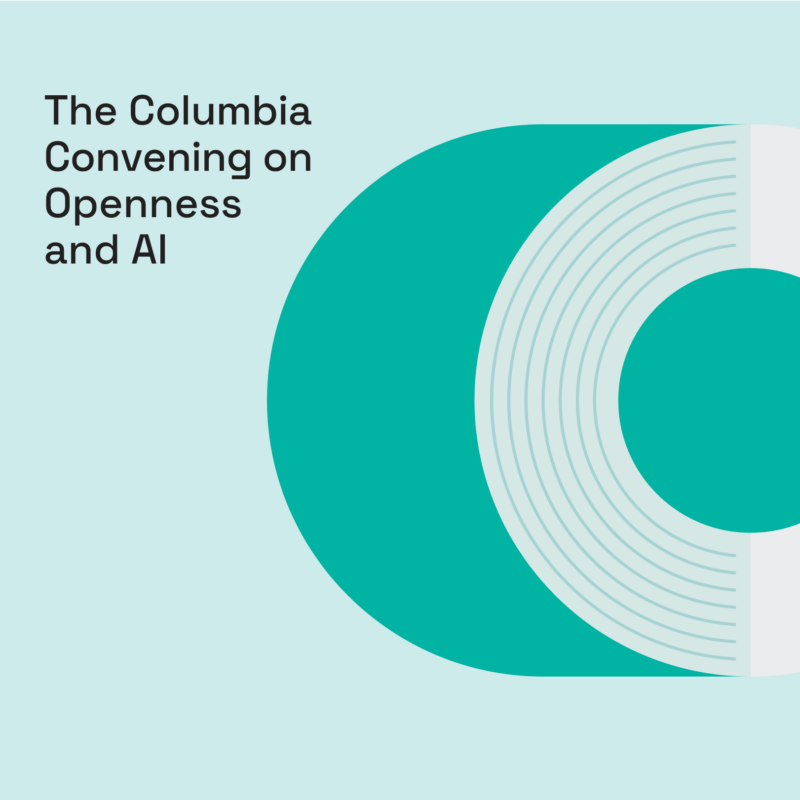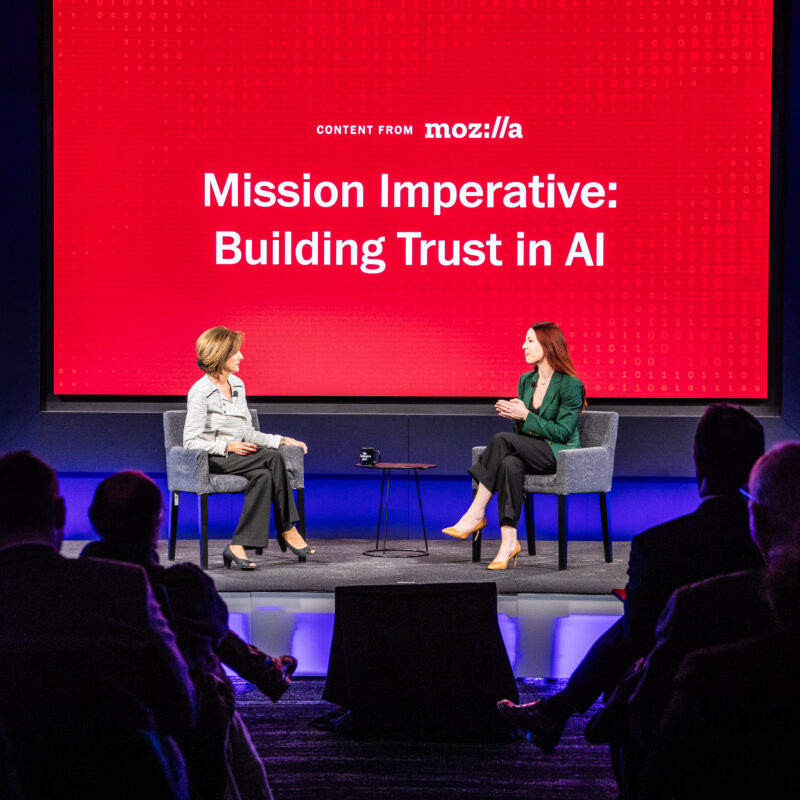Looking ahead at Mozilla’s next quarter century
In the world of tech, some challenges can feel impossible to solve. That was the feeling many of us had 25 years ago — before we’d heard of Mozilla.
I was one of those people who’d been excited by the openness and creativity of the web from the first moment I saw it. And, in turn, I was also one of those people who was sad (and maybe even angry) when Microsoft tried to lock the web down inside its Internet Explorer monopoly. By the late 90s, the web had become broken and banal.
When it launched on March 31, 1998, Mozilla set out a bold goal: rally a community to create an open-source browser that would turn the tide, putting the web back in the hands of people everywhere. Breaking a monopoly with people power seemed like an impossible task. Yet, over the course of five years, this is exactly what the Mozilla community did with Firefox.
As Mozilla turns 25 today, it feels like we’re in a similar spot — and that Mozilla and its community are being called to make the impossible possible, again.
The internet gives most of us a big sense of joy and connection. It’s where we connect with friends and family. It’s where we laugh. It’s where we fall in love. Yet, as the internet has fallen back into the hands of a few big companies over the last decade, it’s also started to grate on many of us. It feels more and more like someone else is in control of our online lives. And, in many ways they are.
Shifting this trajectory — pushing things in a more trustworthy, competitive, and vibrant direction again — can feel impossible. It’s a big, daunting task. But as someone who still believes the internet can be a force for empowerment and human connection, it’s a task we need to tackle. And I’m somewhat optimistic. We’ve done it before.
When I think about Mozilla’s next 25 years, I think about doubling down on the playbook that worked the first time: gathering a community of people who want to make the impossible possible. Diving into the world of trustworthy AI over the last few years, I’ve met many such people — thinkers and builders and inventors and dreamers who want AI to look dramatically different.
People like Anne Kim, CEO of Secure AI Labs (SAIL), which uses AI to advance medical research — but also protect patient privacy. Anne’s work is about harnessing the power of AI without making compromises.
People like Deb Raji, who started the Mozilla Open Source Audit Tooling (OAT) Project. Deb is shepherding AI audits from a theoretical concept to an actual discipline, like auto emissions tests and food inspections.
People like Pelonomi Moiloa, co-founder of Lelapa AI. Pelonomi and Lelapa are building AI that’s made for Africans by Africans: their needs, their devices, their languages. It’s a local and thoughtful approach to building technology.
And people like Kasia Chmielinski, co-founder of The Data Nutrition Project, which interrogates the quality of datasets that train AI.
These are all people who I’ve been lucky enough to meet recently through Mozilla. They are realistic about the challenges ahead. But they also know it’s worth rolling up their sleeves and doing something about it.
That part — the community of people with purpose rolling up their sleeves — is very much like what happened 25 years ago. What’s different is that Anne, Deb, Pelonomi, Kasia and so many other people like them that I have met are building their own products and projects. And have their own communities. Collectively, they are working on something much more powerful than a single open source project. They are creating a wave of ideas and tech that could push the internet — including AI — in a dramatically different direction.
In my view, this is key to making the impossible possible again. If we want to push things in a different direction in this next era, we need more than one or two new products like Firefox — we need a wave.
This thinking drives what we’re doing in Mozilla’s current product development (looking for many products to advance our Manifesto). It’s what spurred us to start Mozilla Ventures (we’ve invested in Anne and Pelonomi’s companies) and Mozilla.ai (Kasia is a product specialist here). And, it’s what’s behind the movement building work that we do through our advocacy and philanthropy programs (Deb is one of our fellows).
On our 25th anniversary (today!), it’s important to recognize that Mozilla has a proud history. But it’s even more important to look to the future: to envision an internet that is a better and more inclusive place in 25 years than it is today. I am deeply committed to supporting and connecting people around the world who want to make this vision come to life. As we look to the future, this is the most important work that Mozilla can do.



